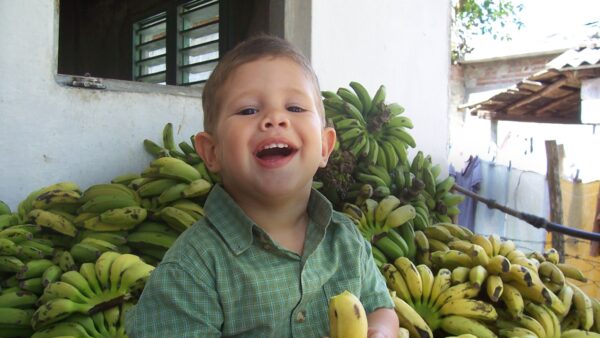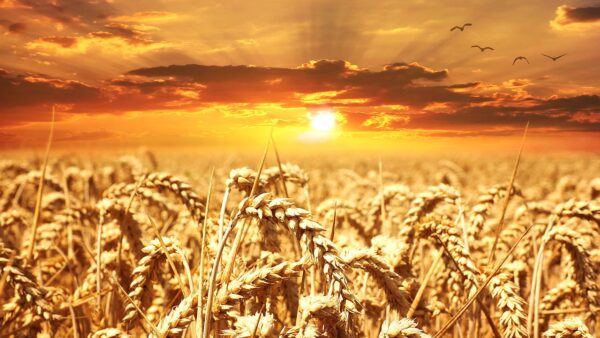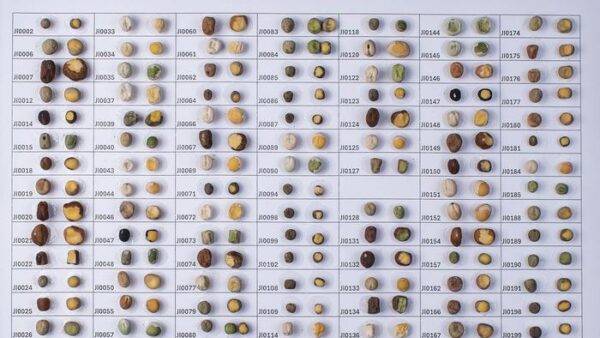While most seed producing nations depend on an integrated system of variety registration, variety listing, seed certification and seed labeling to enable and support the use and movement of seed both domestically and for export, each country’s system is unique.
In March of 2023, JRG Consulting Group prepared a comprehensive report for the Canadian Food Inspection Agency comparing the seed systems in six key seed producing countries: Canada, the Netherlands, New Zealand, the U.K., the U.S. and Uruguay. The report provided key global insight, and correctly identified Uruguay as a seed producer of note on the global scale. This article summarizes the key findings from that report, and outlines the benefits of, as Diego Risso, executive director of the Seed Association of the Americas, says, “this country of opportunities”.
Uruguay has a centuries long tradition of growing crops. However, its seed industry and seed regulatory system are quite new. The National Institute of Seeds (INASE) was created just 25 years ago (1997) to help build Uruguay’s fledgling seed industry.
Despite its newness, Uruguay’s seed industry is growing. Data from INASE shows exports are climbing upwards from 16,300 total tonnes in 2017 (the first year for which INASE has data) to 19,100 total tonnes in 2021. Meanwhile, seed imports (though inconsistent from year to year) are generally trending downwards, from a high of 32,900 tonnes in 2010 to an average of 12,600 between 2019 and 2021.
Currently, Uruguay is home to approximately 100,000 seed-producing acres, most of which are used for contra-season production for northern hemisphere seed companies. According to INASE, Uruguay produced 103,486 total tonnes of seed in 2019, of which approximately 23% was forage and 77% was all other agricultural seed. The total produced rose to 111,063.9 tonnes in 2020.
Uruguay’s seed industry is well positioned for the future. According to JRG’s report, Uruguay’s competitive position is strengthened by its location for contra-season production (and ability to learn from counties like Argentina and Chile that are already successful in this area), the widespread acceptance of certified seed in Uruguay (with associated revenues furthering the sector), and the fact that a single organization – INASE – has proven itself adept at informing and representing the sector’s various stakeholders.
“Uruguay is often perceived by businesses as a gateway to South America. Due to the country’s inherent conditions related to safety, transparency, and stability, as well as its regulatory environment, foreign companies select Uruguay as a preferred location to test, expand, and market their products,” says Victoria Stewart, operations manager with the Uruguayan Plant Breeders Association (URUPOV).
The JRG report identified several key differentiating factors between seed systems in various regions.
- Production oriented towards domestic versus export markets:
Of the six countries included in the JRG report, the Netherlands is the biggest exporter of seed by percentage, with 80% of its seed production destined for external markets. Canada exported the least, at just 10% of its total seed volume.
According to INASE, Uruguay in 2021 exported about 10% of its non-forage and 50% of its forage seed. This measured just over 6,000 tonnes of non-forage and 13,057 tonnes of forage seeds, totalling an estimated value of at least $25M US. The primary crop types exported included soybean, rice and ryegrass. According to ISF, Uruguay imported 7,613 more tonnes of non-forage seed than it exported in 2021. Meanwhile, it exported 10,870 more tonnes of forage seed than it imported.
- Industry uptake of certified seed:
Use of certified seed varies globally. Of the six countries compared by the JRG report, the highest rate of certified seed use was in the Netherlands, the UK and Uruguay, mostly because farmers understand and recognize the value of certified seeds within their farming systems. Higher rates of certified seed use are good for a country’s seed industry, since it typically means higher revenues for seed companies and, therefore, more dollars invested into research and development by seed companies and plant breeding organizations.
According to INASE, about 50% of all of Uruguay’s agricultural seed (excluding forages) produced and nearly 90% of its forage seeds produced were certified in both 2020 and 2021, with an increase year over year.
- Regulatory body & key stakeholders:
Most countries coordinate and direct their seed systems through a single regulatory body, either governmental or, as is the case in Uruguay, New Zealand and the Netherlands, industry led. In the US, seed certification is handled by each state, with the Association of Official Seed Certifying Agencies (AOSCA) providing guidance.
In Uruguay, there are four key stakeholder agencies:
The Uruguayan Plant Breeders Association (URUPOV): is made up of leading companies and institutions that specialize in the research, development, production, and sale of new plant varieties. The Association’s primary objective is to protect plant breeders’ rights in order to support the creation of new varieties and promote the agriculture sector’s sustainable growth. The Association’s key role is to promote plant breeding by providing services that assure effective enforcement and recognition to PBRs through fair royalty collection mechanisms.
The Seed Producers Association (ANAPROSE): promotes exports and facilitates imports that support the growth and development of members’ activities, both public and private.
The Uruguayan Chamber of Seeds (CUS): promotes the use of high-quality seeds and the integration of advanced technology into seed production, works to strengthen and promote trade exchanges with a goal of accessing new markets, and advocates for members’ interests, liaising with both public and private entities to support industry growth.
INASE exists to promote the development of Uruguay’s seed sector. It is funded by fee-for-service and an annual contribution by government. INASE’s primary tasks include variety testing, variety listing, certification of acres and quality assurance inspection and accreditation audits. It conducts the DUS tests required for a new variety to be listed in the national seed catalogue. It also oversees field trial performance testing as an informational service for farmers.
Daniel Bayce, executive director of INASE says: “We advocate for the production and utilization of high-quality seeds. By setting forth production and marketing standards and ensuring their adherence, we aim to guarantee access to superior materials. We are dedicated to ensuring the smooth operation of seed businesses, producers, and users. Uruguay’s dedication to quality, innovation, and robust regulation ensures that its seed sector will continue to flourish, contributing to the nation’s agricultural achievements and the global industry.”
“INASE plays a crucial role in the regulation and control of seed quality. This ensures that seeds meet international standards, which is fundamental to the global seed trade. All these facts position Uruguay a successful competitor in the international seed market,” says Diego Risso, executive director of the Seed Association of the Americas.
It’s also important to note that Uruguay is a member of international organizations such as UPOV (International Union for the Protection of New Varieties of Plants), ISTA (International Seed Testing Association), and the OECD seed schemes. Together, these relationships and processes mean “the country offers assurances and facilitates provisions for seed companies, making it conducive for them to establish and grow their businesses there,” adds Stewart.
- Certification protocol including self-inspection:
While most seed certification of agricultural crops is managed by government, seed certification protocols come from industry instead in some countries. Even within a government-coordinated system, seed companies often choose to deliver quality assurance to seed buyers outside of or above and beyond government regulations. Most vegetable seed is self-inspected, for example.
The JRG report identified that the Netherlands and England self-inspect a significant percentage of their field crop production and that, in Canada, the US and New Zealand, self-inspection is allowed in common seed but not certified seed. In Uruguay, breeder seed is all inspected by INASE. Certification of 1st and 2ndgeneration seed is based on an inspection accreditation program overseen by INASE, whereby accredited companies are permitted to self-inspect.
Uruguay may be relatively new on the global stage, but it’s open for business.
“Given these credentials, Uruguay is poised to play a pivotal role as a significant partner in counter-season seed production. This refers to producing seeds during a season opposite to the main production regions, providing a consistent supply of seeds throughout the year for global markets,” adds Stewart.
Uruguay leads the world in World Bank’s ‘Supplying Seed’ rating
In its Enabling the Business of Agriculture 2019 report, the World Bank rated Uruguay first among all 101 countries in the rating scale’s ‘supplying seed’ category, with a score of 88.1 out of 100 (compared to the South American average of 72.1).
The Supplying Seed category rating was based on three factors:
- The time required to register a new cereal variety: Uruguay’s time to register a new variety was measured at 305 days. In comparison, time to register averaged 489 days across South America, where the longest measure was Chile at 698 days. Globally, Myanmar and France scored best in this category, registering new varieties in an average of just 147 and 236 days respectively. Conversely, China scored lowest, registering new varieties in an average of 1575 days.
- The cost to register a new cereal variety: In Uruguay, the cost to register a new variety measured 4.3% of per capita income. Comparatively, the cost of registration averaged 28% of per capita income South America-wide, with registration costing most in Columbia (100%) and least in Brazil (3.4%). Globally, the highest cost to register was Malawi, at 1536% of per capita income.
- The quality of the seed regulation. South American countries scored an average of 6.6 on a 0-9 scale. Peru, Argentina, and Brazil all scored 7/9. Uruguay was the sole South American country to score 8/9, a single point lower than about a dozen European countries and Zambia, which scored 9/9.
While Uruguay scored very well in the Supplying Seed category, its overall rating was 65.5 out of 100 for the impact the country’s cumulative agriculture regulations have on farming.










